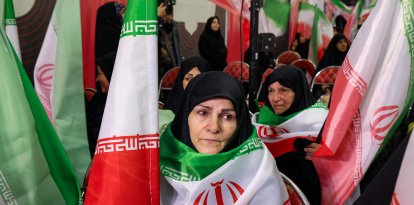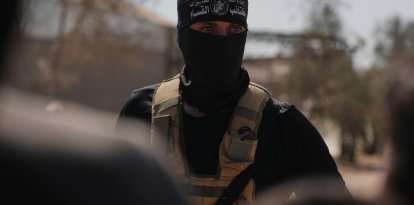'Deal' or regime change in Tehran?
Will Israel be able to finish the job, a job that no one else would have done? And will it amount to a benefit for all, or will the Western voices prevail that do not want to see the bearded men in Tehran surrender?

A site attacked by Israel in the Iranian capital, Tehran.
The war opened by Israel's preemptive attack on Iran’s nuclear and ballistic programs continues with the same tone as on its first day: Israel strikes military and quasi-military targets with the sky practically clear of Iranian air defense systems, as those remaining were practically eliminated on the first day. Israel has opened a corridor to Tehran allowing its fighters to hit targets at will in the Iranian capital, where a good part of the Iranian military and intelligence leadership has been eliminated.
One of Israel's priorities, in addition to damaging the underground uranium enrichment infrastructure and all Iranian ballistic missile factories as much as possible, is to destroy as many of the missiles and missile launchers with which Tehran can respond.
More than a score of people have been killed in Israel due to the launching of missiles by Iran, which despite the blows received is still capable of attacking. Israeli authorities stress that all the dead and wounded were outside the bunkers when the missiles arrived. The message is that the Israeli shelter system is also working in this war of greater intensity than those of recent years, and that whoever follows the instructions of the authorities will be safe.
Despite the high Israeli interception rate, Iran has also hit some important targets in Israel, such as the Ministry of Defense. There has also been talk of energy infrastructure.
Despite the intensity of Iran's attacks, things seem to be going according to plan for Israel, which for the time being is able to resist the enemy's missile waves and inflict much greater and, above all, more decisive damage.
According to several media reports, Israel succeeded with its initial surprise attack in thwarting Iran’s plans to respond with a barrage of a thousand ballistic missiles to an attack against its nuclear program. The Iranian response has so far consisted of waves of 100 ballistic missiles each, a number far short of 1,000, which could have overwhelmed Israeli air defenses.
Some experts have warned that, if the U.S. does not join the attacks with its bombs capable of completely penetrating the bunkers, Israel will only be able to delay the Iranian nuclear program, but not to neutralize it completely.
This information suggests the necessity, and not merely the possibility, of Israel forcing the downfall of the regime in Tehran.
The degree of Israel’s penetration in Iran, where they say that Mossad troops are still operating, and the access they have gained to assassinate leading regime figures, seems to indicate that Jerusalem can get to Supreme Leader Khamenei if it so chooses.
One problem in consummating regime change could be international pressure. Although it is not clear that this is not an empty gesture, Trump continues to insist on a “deal” and has called for the war to end soon. According to some media reports, he would also ruled out the possibility of eliminating Khamenei, although this point has been denied by Israeli sources. Nor do the Europeans seem enthusiastic about regime change, and Macron has urged Iran to negotiate as soon as possible over its nuclear program.
Another Israeli concern is that the same international pressure will lead it to force it to end the war prematurely, without having inflicted all possible damage on Iranian strike capabilities, nuclear or otherwise.
Given the degree of devastation Israel is wreaking among Iran’s major power structures and infrastructure, the fall of the regime that has been subjugating Iranians and promoting terrorism in the world since 1979 could very well occur without the need for the physical elimination of their political leaders. Netanyahu has called on Iranians to rise up against the regime, which is now too weakened to be able to suppress protests.
Will Israel be able to finish the job, a job that no one else would have done? And will it amount to a benefit for all, or will the Western voices prevail that do not want to see the bearded men in Tehran surrender?
























